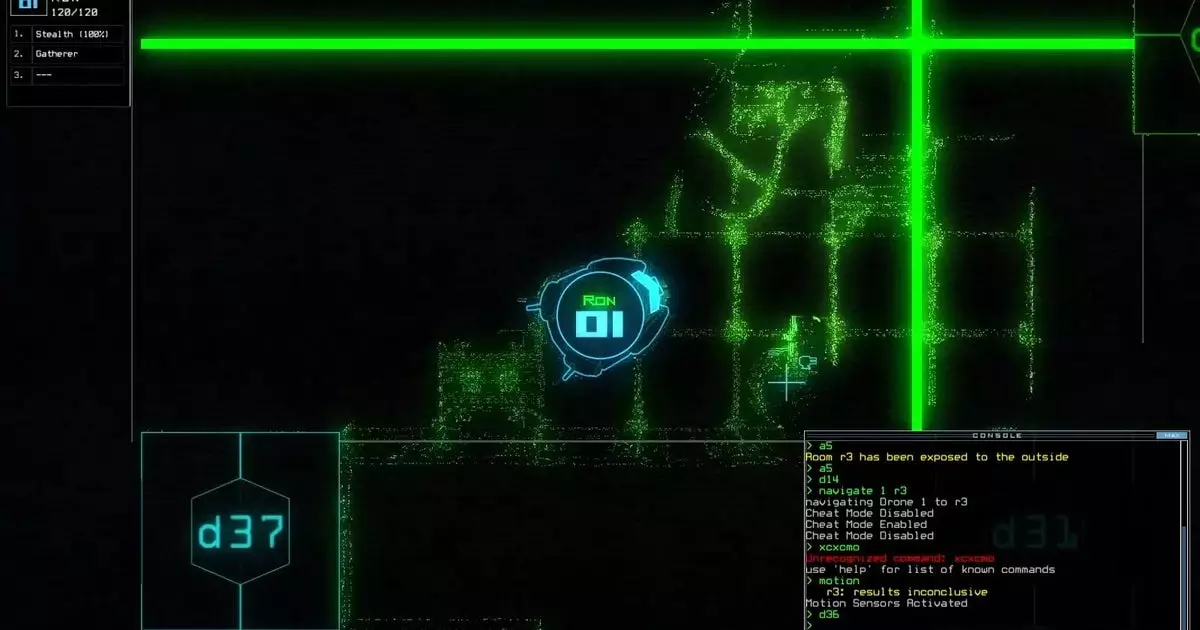As the gaming landscape continues to evolve, studios often seek to harness the kind of creativity and innovation that can lead to breakthroughs in gameplay and storytelling. Misfits Attic, the team behind the acclaimed space exploration game Duskers, is making headlines once again with their announcement of what’s being called “spiritual successor” to the 2016 title. With a new project tentatively named “Humanity 2.0,” the studio is poised to delve back into the mesmerizing yet bleak world of space exploration, all while introducing new mechanics and thematic depth to the gaming experience.
Humanity 2.0 promises to expand upon the core experience of Duskers, where players previously commanded a cadre of malfunctioning drones through the vastness of space. This time, however, the opportunity for creativity and customization seems to take center stage. Players will reportedly be tasked with dismantling derelict ships, salvaging parts to construct their very own vessels. This introduces a new dimension to gameplay that encourages a hands-on approach to exploration. The game’s unique premise encourages players not just to survive but to innovate and adapt in the face of adversity.
In a recent reveal video, co-founder Tim Keenan expressed his enthusiasm for the project, highlighting the inclusion of drones that now feature quirky personalities. The idea of installing upgrades that affect their behavior adds a delightful twist of unpredictability to the game, creating an emotional depth often lacking in traditional space simulators. This new dynamic evokes a sense of relationship between the player and their robotic companions, perhaps allowing for moments of levity amidst the overarching darkness of the game’s narrative.
One of the distinguishing factors of Humanity 2.0 is Keenan’s ambition for the game to address themes beyond mere survival. He aims to introduce moral complexities that challenge players to think critically about sacrifice in the context of a dystopian world. The narrative appears to unfold in a bleak future, where decisions could alter the fate of surviving symbiotic relationships while evoking a sense of melancholy ambivalence.
Keenan’s comparison of the game’s tone to “a ray of hope, not a sunrise” indicates a commitment to exploring darker themes within the confines of hope itself. This juxtaposition may provide players with a more profound gaming experience, allowing them to not only engage with the sci-fi aesthetic but also contemplate narratives reflective of existential struggles. As players are expected to grapple with difficult choices, the potential for a richly woven storyline is apparent.
Although Humanity 2.0 is capturing the spotlight, it is essential to recognize that Misfits Attic is hard at work on additional projects. Among these is a fantasy-themed strategy game known as “Scheme,” promising players an intricate blend of cunning and manipulation reminiscent of titles like Crusader Kings. This game seems poised to explore political machinations in a highborn society, where players ascend in power through intellect and treachery rather than brute strength.
The final venture in their lineup, a clever roguelike entitled “Magic Wizard Chess,” also hints at an innovative blend of genres. With elements of psychological evaluations layered into gameplay, the concept seeks to mix traditional chess strategy with whimsical RPG elements. This kind of experimentation demonstrates Misfits Attic’s versatility and willingness to push boundaries, which could resonate well with players seeking fresh and inventive gameplay experiences.
As Misfits Attic ventures deeper into the development of Humanity 2.0 and other titles, it’s clear they are not merely resting on the laurels of Duskers. Instead, they are expanding horizons and exploring new themes that provoke thought and engagement. The emotional connections players can form with their drones during gameplay, coupled with a story that invites moral contemplation, promises an evolution of the studio’s narrative ambitions.
Misfits Attic is not just creating games but is strategically crafting immersive experiences that harken back to their past successes while carving out new paths. As their three projects unfold, players and fans alike will be eagerly awaiting their next journey into the cosmos, where the only certainty remains the uncertainty of survival among the stars.

